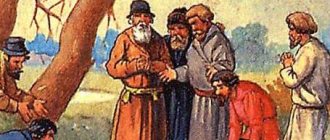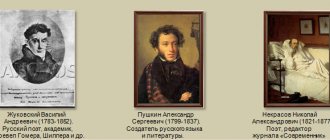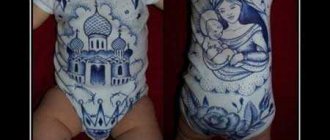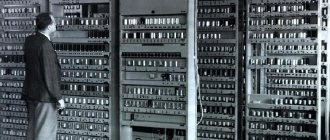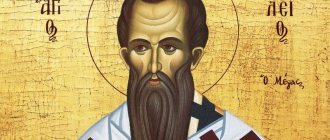Comrade Mao Zedong has been called the greatest Marxist-Leninist of the twentieth century. His followers believe that he creatively and comprehensively inherited, defended and developed Marxist Leninism, and raised it to a higher and completely new level. The revolutionary was convinced that imperialism was heading towards complete collapse, and socialism was striving for world victory. Many still consider his quotes to be a powerful ideological weapon to counter imperialist trends, to counter revisionism and dogmatism. In the twentieth century, a collection of quotes from Mao Zedong was the guiding principle for all the work of the party, army and country.
The most famous quotes of Mao Zedong
Comrade Mao Zedong has been called the greatest Marxist-Leninist of the twentieth century. His followers believe that he creatively and comprehensively inherited, defended and developed Marxist Leninism, and raised it to a higher and completely new level. The revolutionary was convinced that imperialism was heading towards complete collapse, and socialism was striving for world victory. Many still consider his quotes to be a powerful ideological weapon to counter imperialist trends, to counter revisionism and dogmatism. In the twentieth century, a collection of quotes from Mao Zedong was the guiding principle for all the work of the party, army and country.
The most striking statements
Basically, Mao Zedong's quotes touch on the topic of the political struggle of socialism with capitalism. He considered American imperialism to be the main enemy of free humanity. Calling him a paper tiger, Mao called on the peoples of the whole world to unite in the fight against him. His theory about the third world war is interesting. He makes it clear that, despite condemning the possibility of unleashing another world conflict, he will only benefit if it occurs. After all, after the First World War the Soviet Union was born with a population of 200 million people, after the Second World War a whole socialist camp was born, and that’s already 900 million. After the Third, he hoped that the whole world would come to socialism.
Also in the “Quote Book” you can find statements of a more general nature, although their share is significantly less than attacks against imperialism. For example, such a philosophical judgment: “What is thinkable, exists” is a rehash of Descartes’ famous aphorism. Or the insightful view that politics is war without bloodshed, and war is politics with bloodshed.
In general, the quotes from Mao Zedong given in the “little red book” give a fairly complete idea of what kind of person the Great Helmsman was. You won’t find any special revelations in it, but perhaps from a historical point of view it will be interesting to get acquainted with them.
Briefly about Mao Zedong
Mao Zedong was a prominent Chinese political theorist, revolutionary, communist and poet. He is the founder of the People's Republic of China. The politician served as chairman of the Communist Party of China from nineteen forty-nine to nineteen fifty-nine. After this, he remained in the ruling Chinese party until his death.
The amalgamation of his theories, thoughts, socialist policies and military strategies is known as Maoism. Mao is often considered one of the most controversial figures of the People's Republic of China, gaining recognition for both the right and wrong reasons. He devoted his activities to expelling imperialism from his own country.
The beginning of the way
Mao Zedong was born into a wealthy peasant family in 1893. He received a classical Chinese education at school. Then he served in the army during the 1911 revolution, after which he entered a pedagogical school. In 1918, Mao created the New People society. His goal was to find ways to transform China. It was at this time that the future Great Helmsman became acquainted with the Marxist-Leninist ideology that determined the fate of Mao Zedong and the entire country.
Thanks to his active work, Mao Zedong quickly became an influential political figure. In 1921 he became the chief delegate of the Chinese Communist Party, and in 1923 he joined the nationalist Kuomintang Party. Throughout his entire journey before Mao came to power, Mao had a rather contradictory relationship with this organization: almost immediately he had political disagreements with its leader Chiang Kai-shek, and soon Mao Zedong separated from the Kuomintang, joining the far-left movement of the CPC. However, the invasion of China by Japan in 1936 forced the warring parties to reconcile for a time.
The most famous quotes of Mao Zedong
Here is a list of the most notable, thought-provoking and interesting quotes and sayings of Mao Zedong:
- “There is a serious tendency towards capitalism among wealthy peasants.”
- “Learn from the masses and then teach them.”
- “An army without culture is a stupid army, and a stupid army cannot defeat the enemy.”
- “War can only be abolished by war, and in order to get rid of the gun one must take up the gun.”
content
"Chairman Mao's Quotes" (毛主席语录, in the center of the bas-relief) inspire the workers of Wuhan to fight the Yangtze flood.
Since the flood occurred in 1954, the presence of a quotation book is an anachronism, but quite understandable, since the monument itself was opened in 1969. The quotation itself: “下定决心,不怕牺牲,排除万难,去争取胜利” (“Imbuy with determination, not be afraid of victims , go to overcome any difficulties to win victory"), from an article in 1945, appears in the chapter “Revolutionary heroism” of the quotation book. The collection contains 427 quotes, systematized into 33 thematic chapters and ordered logically. The volume of quotations varies - from one sentence to a detailed argument of several paragraphs. Most of them are taken from a group of about 20 major works by Mao.
Quotation book chapters:
- Communist Party
- Classes and class struggle
- Socialism and communism
- Correctly resolve contradictions within the people
- War and Peace
- Imperialism and all reactionaries are paper tigers
- Dare to fight and dare to win
- People's War
- People's Army
- Leadership of party committees
- Mass line
- Political work
- Relationships between officers and soldiers
- Relationship between the army and the people
- Three democracies
- Education and training
- Serve the people
- Patriotism and internationalism
- Revolutionary heroism
- Diligence and frugality in building a country
- Rely on your own strength, fight persistently and selflessly
- Method of thinking and method of work
- Survey and study
- Eliminate wrong views
- Cohesion
- Discipline
- Criticism and self-criticism
- Communist
- Personnel
- The youth
- Women
- Culture, art
- Studies
Quote from Mao Zedong
In the twentieth century, the government compiled the great chairman's sayings into one collection to "help the general public study Mao Zedong's thought more effectively." In organizing their learning, people were required to select and memorize passages that suited the situation, their goals, and their current thinking.
The preface to the quotation book said: “A new era is dawning in our great homeland, in which workers, peasants and soldiers are beginning to fully master Marxist Leninism, Mao Zedong believes. Once Mao Zedong Thought reaches the masses, it will become an inexhaustible source of wisdom and a spiritual atomic bomb of infinite power. Large-scale publication of our Chairman's quotes is a vital measure to enable the general public to understand Mao Zedong's thoughts, promoting the revolutionary thinking of our citizens.
We believe that all our people will study diligently and diligently to bring about a new nationwide wave of creative study and practical use of the chairman's works, and under the great red banner of Mao's thoughts, they will transform our homeland into a wonderful socialist state with modern agriculture, developed industry, innovative science and culture, and reliable national defense!
Cultural Revolution
In the 60s, active persecution of dissidents began in China. According to the well-established scheme, the signal shot was Yao Wenyun’s article “On the new edition of the historical drama “The Demotion of Hai Rui.” Chinese historian Wu Han was accused of anti-socialism and criticism of the political methods of the ruling party. After this, a series of bloody repressions began. Mao's supporters relied on the most grateful audience for such purposes - immature youth, from whom the Red Guard detachments were formed. Thousands of people were killed as a result of this “cultural revolution”, hundreds of thousands were expelled from the country, and even more fled. Many were forced to commit suicide. And it was at this time that the famous “Quotation Book” was published - a book in which Mao Zedong most fully reveals his views on government and much more.
Mao Zedong
Date of Birth:
26. December 1893
Date of death:
9. September 1976
Mao Zedong is a Chinese statesman and political figure of the 20th century, the main theoretician of Maoism.
Having joined the Communist Party of China at a young age, Mao Zedong became the leader of communist regions in Jiangxi province in the 1930s. He was of the opinion that it was necessary to develop a special communist ideology for China. After the Long March, of which Mao was one of the leaders, he managed to take a leading position in the CCP.
After the successful victory over the troops of Generalissimo Chiang Kai-shek and the proclamation of the formation of the People's Republic of China on October 1, 1949, Mao Zedong was de facto the leader of the country until the end of his life. From 1943 until his death he served as chairman of the Chinese Communist Party, and in 1954-59. also the position of Chairman of the People's Republic of China. He carried out several high-profile campaigns, the most famous of which were the “Great Leap Forward” and the “Cultural Revolution”, which claimed the lives of many millions of people. During the reign of Mao Zedong, repressions were carried out in China, which were criticized not only in capitalist, but even in socialist countries. Also during that period there was a personality cult of Mao Zedong.
Time magazine named Mao Zedong one of the 100 outstanding people of the 20th century in the "Leaders and Revolutionaries" category.
Rise to power
During the war with Japan, Mao Zedong paid much more attention to strengthening his political positions among the peasantry. He actively led the purge program and wrote a series of articles in which he determined that the Chinese version of communism was focused on the peasantry, and not on the urban working class. With the end of the war, the truce with the Kuomintang also ended. Fierce clashes between parties resulted in a bloody civil war, which ended with the defeat of the Kuomintang, its flight to Taiwan and the proclamation of the People's Republic of China in 1949.
Quotes from Mao Zedong
"Quotes from Chairman Mao Zedong"
(Chinese: 毛主席语录, pinyin:
Máo Zhǔxí Yǔlù
, pallet:
Mao Zhusi Yulu
), or
“Quotation Book”
(translated from the official Beijing edition in Russian 1967:
Collection of excerpts from the works of Chairman Mao Tse-tung
) , known in the West as
“
The Little Red Book
(French :
Le (petit) livre rouge
) is a short collection of key sayings of Mao Zedong, first published by the Chinese government in 1966. Quotations from Mao Zedong contains quotations from Mao's speeches and published works, organized thematically. The widest distribution (more than a billion copies) was a pocket edition in red binding, intended for carrying with you. This is one of the largest book circulations in the world (comparable only to the circulations of the holy books of the Abrahamic religions - Christianity, Islam and Judaism).
Mao Zedong (PRC): the path to happiness along the beaten path of the USSR
The United States, which supported Chiang Kai-shek, refused to recognize Mao Zedong's new republic, unlike the Soviet Union. A treaty of mutual assistance and friendship was signed between the countries in 1950. Purges, collectivization, five-year plans, “catch up and overtake” - everything that was characteristic of the period of Stalin’s repressions in the USSR has now visited China. After Stalin's death, Mao Zedong became the most influential communist leader in the world, in every possible way encouraging the increasingly developing cult of his personality. However, it soon became clear that the policy of the accelerated “Great Leap Forward” was not producing tangible results. The standard of living of the peasantry fell sharply, inflation increased, and production volumes decreased. Famine began in the country.



